Beer lines in Wisconsin; how clean are draft lines at bars, restaurants?
How clean are Wisconsin beer tap lines?
FOX6 News found there is no Wisconsin law regulating the way beer tap lines are maintained or the frequency in which they’re cleaned.
MILWAUKEE - Wisconsin is known for its beer and has earned top marks for its beer consumption, rich beer culture and decades of beer history. But along with the big business it brings to the state, there is no denying Wisconsin residents love their beer.
The state’s beer consumption begs the question, how clean is the beer coming from draft lines at bars and restaurants? FOX6 News learned in many cases, you may never know.
One person who knows the ins and outs of beer line maintenance is Paul Luebke, the owner of Lake Country Pro Tap. He does beer line and tower cleaning, and maintenance for businesses across the area.
"It’s great business," said Luebke, who has been in the business a decade. "It’s job security. As long as the sun rises and sets, you’re going to come back and have work to do."

Paul Luebke
On a cool fall day, Luebke’s first client of the day is Hale House in Hales Corners. He was hired to clean their beer lines and system every two weeks.
"We try to make sure everything that we send out, whether it’s from the kitchen or from behind the bar is quality and up to our standards," said owner Jeremy Chounard. "We’re not required to do it, we choose to do it to make sure that the quality of our beer is coming through."
SIGN UP TODAY: Get daily headlines, breaking news emails from FOX6 News
Their cleaning schedule is in line with the recommendation of the Brewers Association. But in Wisconsin, not everyone is required to do so and the customer may have difficulty finding that information.
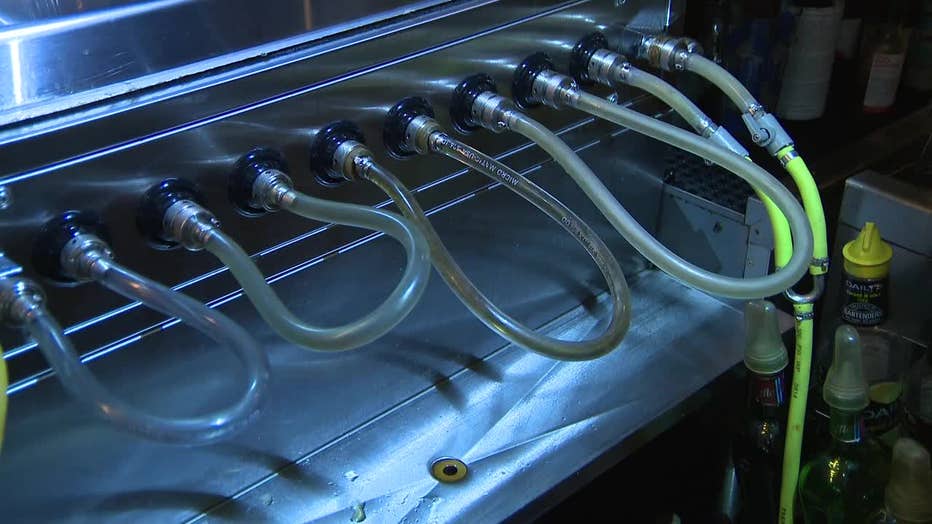
"You really have no idea who is maintaining them, how good they are at it, or if they’re maintained at all," said Luebke.
FOX6 News found there is no law regulating the way tap lines are maintained or the frequency in which they’re cleaned.
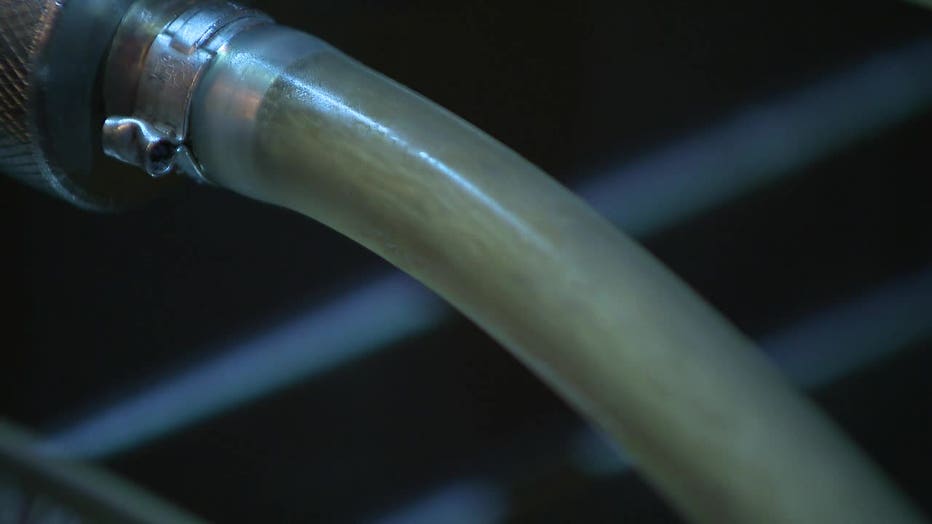
In most taverns without a food license, the Department of Revenue issues liquor licenses; those establishments must follow basic "restaurant sanitation rules" as laid out in Statute 125. According to a DOR spokesperson, their licenses do "not cover the cleaning of tap lines."
FOX6 spoke with several patrons at a local beer garden who had experience working in the industry, who said bars are not always cleaning their lines.
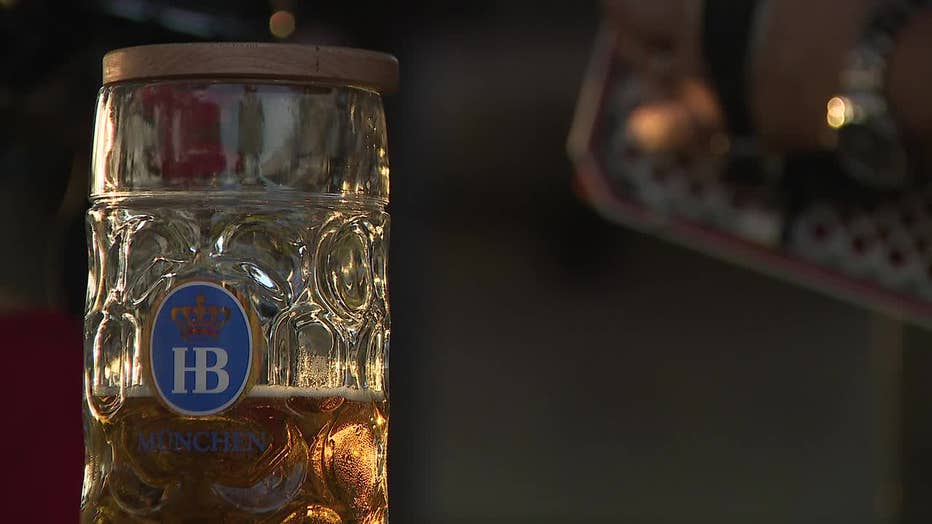
"I worked in the industry, in the bartending industry, the good places keep them up, the bad places are just there to make money," said Jack Roepke. "I think your customers will regulate it themselves."
If a place serves food, health departments are inspecting often in coordination with the Division of Food and Recreational Safety, a division of the Wisconsin Department of Agriculture, Trade and Consumer Protection.
Those inspectors are following the state’s food code that specifies that draft lines must be cleaned "at a frequency specified by the manufacturer" or to "preclude the accumulation of soil or mold."
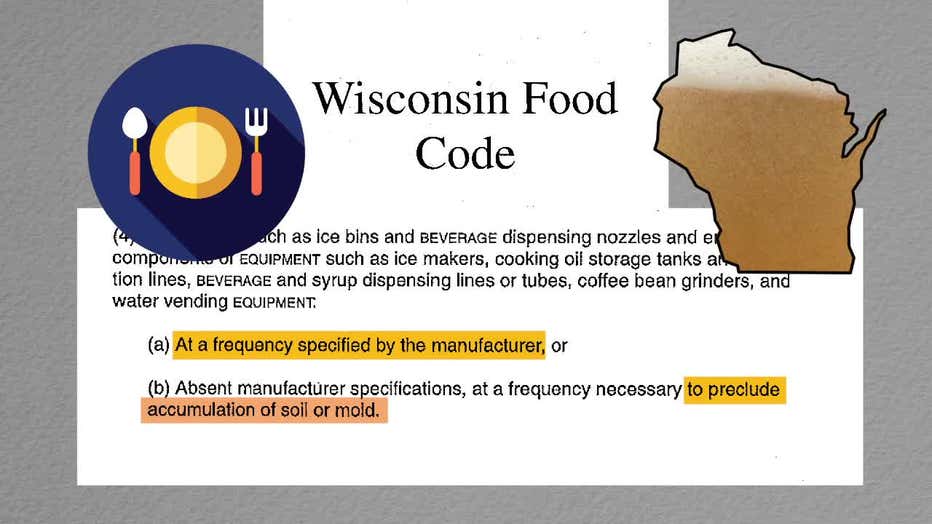
However, the frequency and method varies, leaving a gray area for restaurants over how and when they may service their lines, and little regulation for bars at all. FOX6 asked one of the leading beer line manufacturers, Milwaukee-based Perlick, their recommendations.
Perlick recommends lines be cleaned every two weeks with an alkaline detergent and cleaned quarterly with an acid cleaner to remove any buildup, according to Kyle Chittim, the Perlick Beverage Dispensing Product Manager. Perlick also recommends a specific beer line cleaning method which involves recirculating cleaning chemicals for 15 minutes at a velocity of two gallons per minute. They also recommend that all faucets, jumpers and lines should be cleaned and replaced regularly.
The Milwaukee Health Department (MHD) is only in establishments that have a food license and could issue an order for a moldy beer line if it’s noticed. It would not be in taverns without food licenses, except in rare circumstances if there was an "imminent health hazard."
FREE DOWNLOAD: Get breaking news alerts in the FOX6 News app for iOS or Android
Since 2017, Milwaukee Health has recorded one complaint involved "beer line" and one complaint mentioning "beer." In September 2021, a complainant thought dirty beer lines were to blame after a prolonged illness after a night at Summerfest. In October 2021, a complainant reported what they believed was larvae in a glass of beer they were served at Doc’s Commerce Smokehouse. In both cases, the businesses reported to the health departments that they regularly clean their lines.
The Health Department maintains dirty beer lines are not a health issue.
"It’s considered a food that doesn’t support the rapid and progressive growth of bacteria, microorganisms," said Julie Hults, an Environmental Health Coordinator with Milwaukee Health Department. "Because of the properties of beer, the acidity, the fact that it’s boiled first when it’s made, it’s not going to allow anything to grow in there."
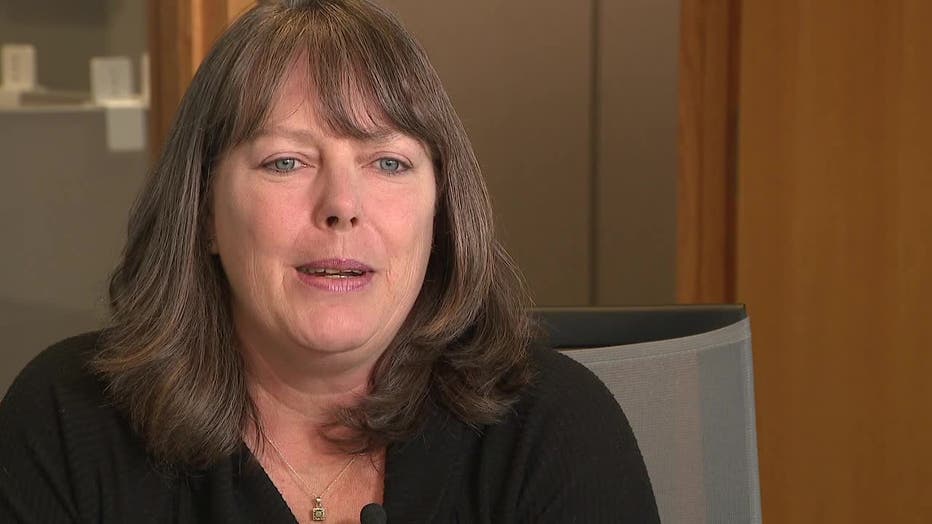
Julie Hults
MHD says the greater public health concern is the person handling and serving the beer, rather than the beer line itself.
"We visually look at them but we don’t ask for any proof of cleaning," said Hults. "There might be some mold in there, maybe some dirt in there, but it’s not anything that’s going to grow, not anything that’s going to produce organisms to cause an illness."
But there are major risks; in 2022, a man in Las Vegas was served a toxic chemical cleaning agent instead of beer, leaving him with permanent health problems.
That’s why Mike Doble, Proprietor of Explorium Brewpubs, glances in every glass that he’s served—even in his own restaurants—because, it happened to him too.
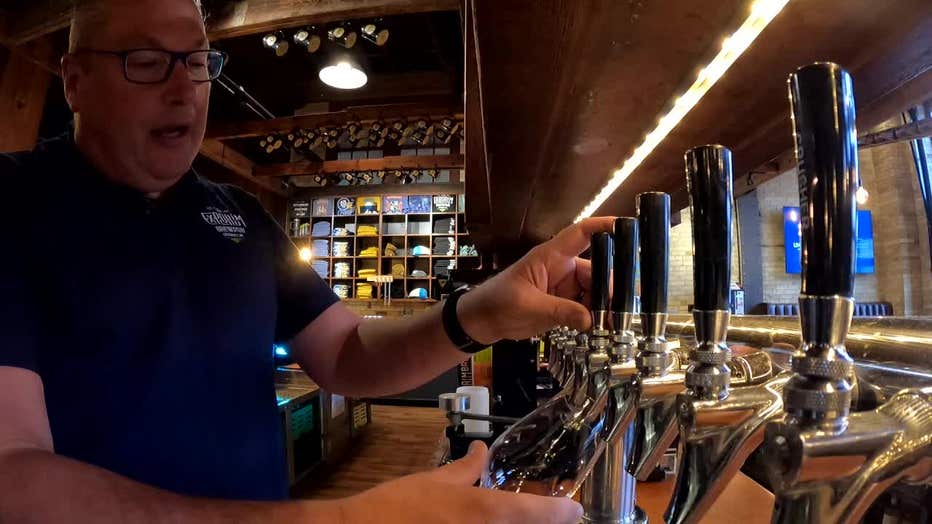
"It looked translucent and blue and I said something right away," Doble said, recalling a time he was served what he thought was beer line cleaner at another bar. "It can be extraordinarily dangerous."
It’s part of the reason Doble implemented high frequency technology into his draft cleaning system. It allows for less frequent, costly cleanings.
"There’s an economic danger in not keeping your draft lines clean because you’re not going to sell a lot of beer," said Doble. "The beer is not going to taste great."
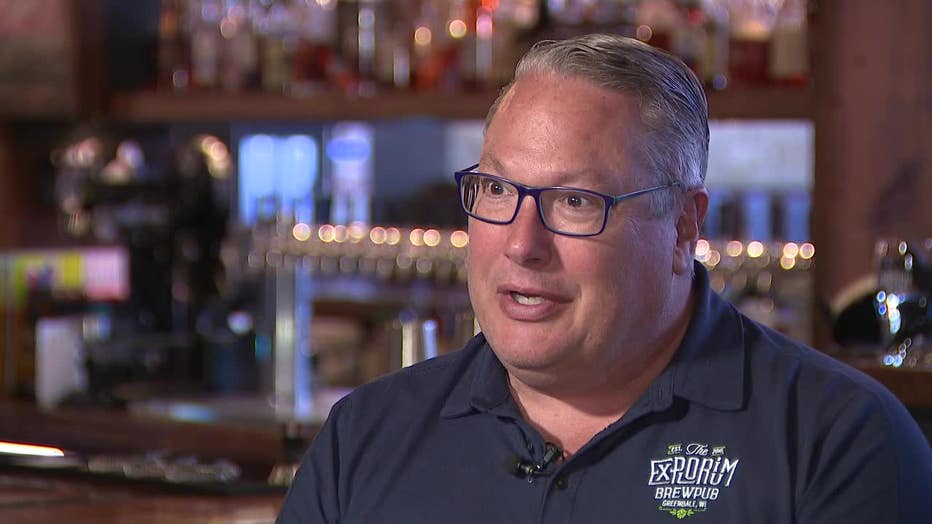
Mike Doble
Doble’s system differs from many others. It allows him to clean his draft lines four times per year. He sanitizes taps daily and cleans faucets monthly.
"People watching may be like that’s insane," he said. "We have a low frequency signal that’s imposed on our draft lines which stops beer stone from depositing and beer stone is the foothold that bacteria and mold need to grow."
Doble, a member of the Brewers Association and Wisconsin Brewers Guild, takes pride in his cleaning operations in his brewpub locations, something he says the health department has never asked about.
"It’s a little surprising that no one has tried to find a way to regulate it or inspect or even ask, what do you do to maintain your draft line cleanliness," he said.
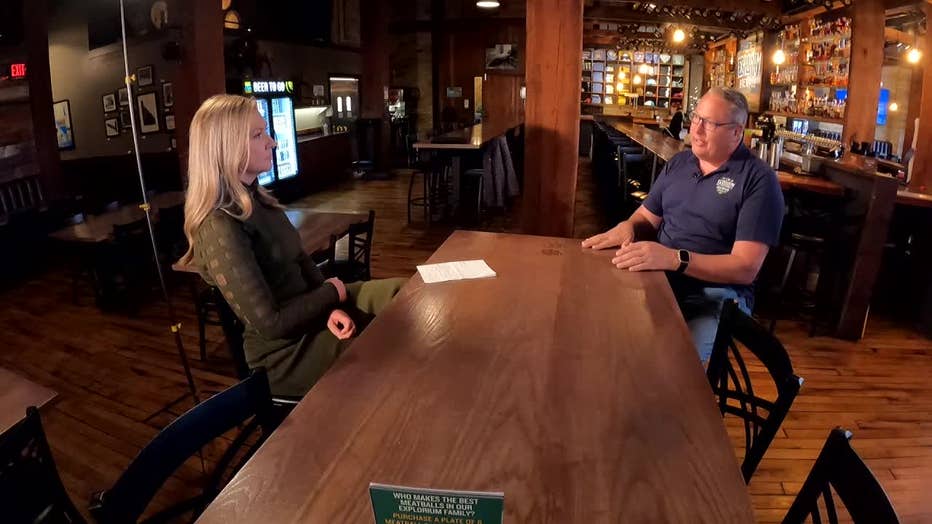
Mike Doble
The length of beer lines, types of beer and the system itself, Doble said, would make any regulation challenging.
"I don’t think people should be worried or second guess drinking craft or draft beer at all, in general, the industry is very, very good about self policing this issue," he said.
The Tavern League of Wisconsin agrees; Scott Stenger calling beer line cleaning a "common sense" industry practice, just as cleaning your glassware is. He says most taverns have agreements with wholesalers or distributors on tap line maintenance and that those have proved effective.
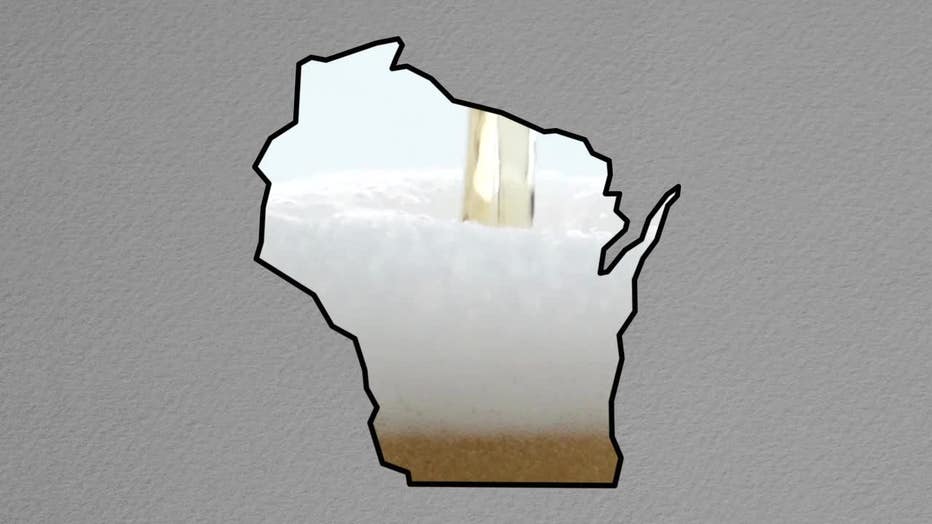
The Tavern League says the health of a tap line is not a public health issue, it’s a taste issue.
Something that Luebke works hard to maintain for his clients, including Hale House.
"If it doesn’t taste right, there’s something wrong," he says.
Advising anyone the best way to find out if your lines are clean is the same way you get a beer—just ask.

